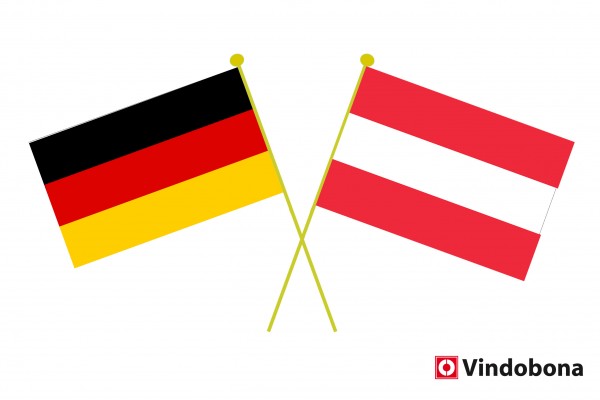Germany Declares Austria a High-Risk Area Again
As of Sunday, Austria is again considered a Covid high-risk area. Returning travelers and travelers from Austria to Germany will again have to go into quarantine. What can vaccinated and recovered people do to avoid having to go back into quarantine?
 For Germany, Austria is again considered a Covid high-risk area as of this weekend. / Picture: © German and Austrian crossed flags by Vindobona
For Germany, Austria is again considered a Covid high-risk area as of this weekend. / Picture: © German and Austrian crossed flags by Vindobona
Because the seven-day incidence in Austria was recently over 700 cases per 100,000 inhabitants, Germany under Health Minister Spahn has decided to reclassify Austria as a high-risk area as of Sunday.
Unvaccinated and unrecovered Germans will then have to be quarantined after returning to Germany, according to a report by tagesschau.de.
Countries and regions with a particularly high risk of infection are considered high-risk areas. The criteria for this include not only the number of infections, but also how quickly the coronavirus spreads, how heavily burdened the healthcare system is, and a deficient CoV data situation.
The rapid rise in new infections in Austria has now prompted Germany to respond.
Austria had already been declared a high-risk area last fall, initially only individual provinces, and from Nov. 1, 2020, all of Austria.
Austria had only been removed from the corresponding list in June 2021.
However, the infection figures had risen drastically again in recent weeks.
In addition, Austria also has a low vaccination rate compared to other European countries, at around 65 percent of the total population.
People arriving from high-risk areas have to spend ten days in quarantine.
Classification as a high-risk area is automatically accompanied by a travel warning from the German Foreign Office. This makes it easier for tourists to cancel trips they have already booked free of charge, but does not mean that they are banned from traveling.
Vaccinated and recovered persons can avert quarantine if they submit proof of recovery or vaccination to the German authorities before entering the country.
In the future, they will be required to register digitally before entering Germany, uploading their vaccination or recovery certificate. When entering the country, the confirmation of registration must be carried along.
If a convalescent or vaccination certificate or a negative test is submitted subsequently, the quarantine period can be shortened.
The 3G rule, which applies to most people at work in Austria, has led to an apparent significant increase in the willingness to be vaccinated.



